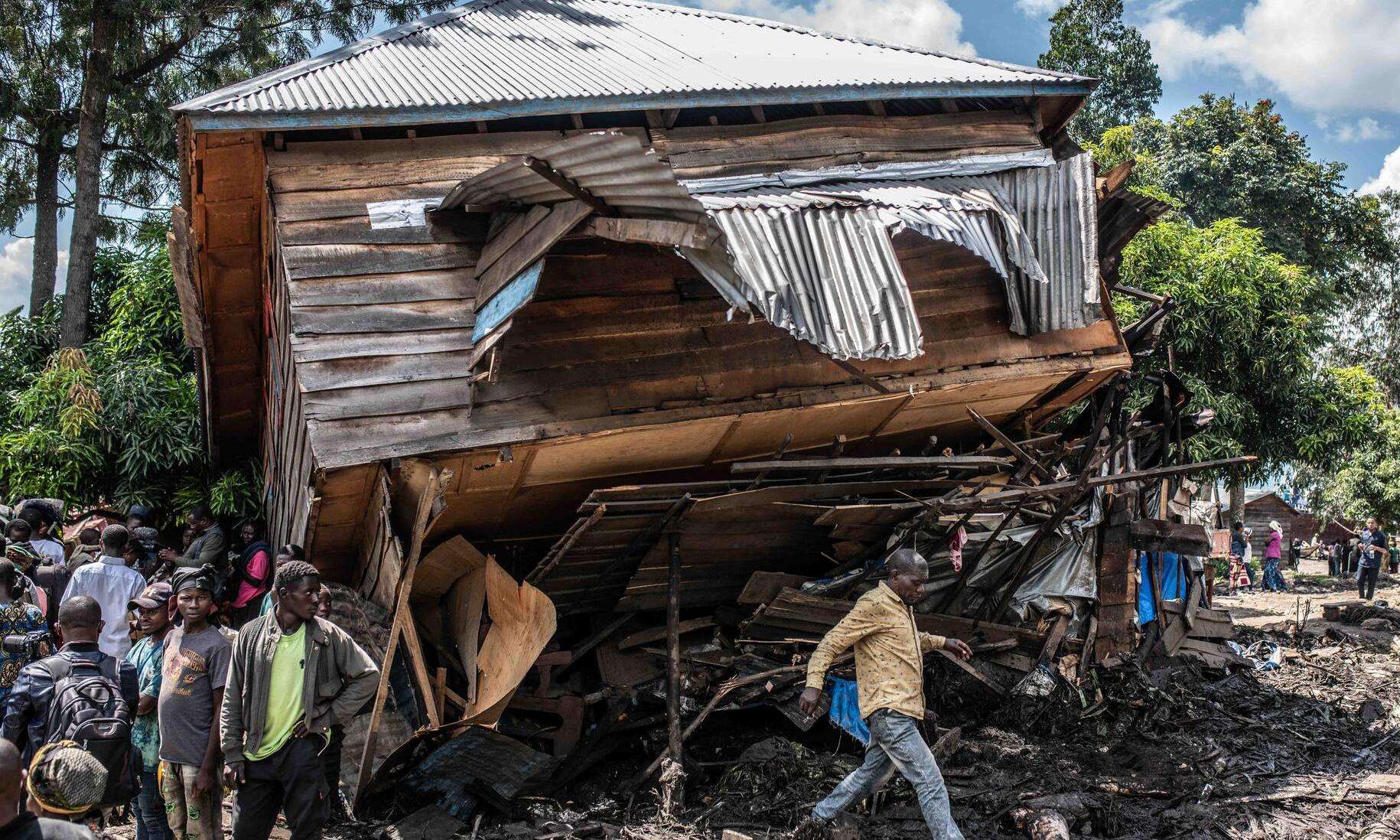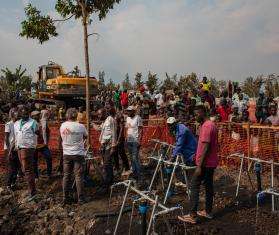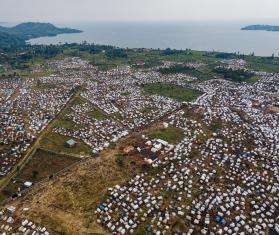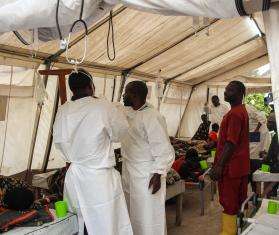On the morning of Friday, May 5, authorities informed our emergency team that overnight floods and landslides had hit Nyamukubi and Bushushu, two villages with a total of around 14,000 people in Kalehe Territory in South Kivu province. After calls with community leaders and local health workers, we soon realized we were facing a major catastrophe.
We mobilized quickly, departing the next day. I traveled with one team by motorbike to Nyamukubi from Minova, where we are assisting displaced people fleeing conflict. The other team left by car towards Bushushu from MSF’s base in Bukavu, the provincial capital, carrying medicines and medical supplies for treating wounded people, as well as body bags.
It was shocking to arrive at the usually vibrant area and find that more than half of the village had been washed away. The houses, the market, the fields, the cattle, the water system. All was rubble.
That week, Nyamukubi had hosted the region’s weekly market day, which attracts visitors from as far away as Bukavu and Goma, so the area was twice as crowded. The disaster caught everyone by surprise. After the first landslide, many people fled, but the river flooded, leaving no way to escape while the heavy rain continued.
May 10 04:30 PM
A state of constant emergency in North Kivu's Masisi hospital
In DR Congo, MSF is responding to the health consequences of years of conflict and displacement.
Read More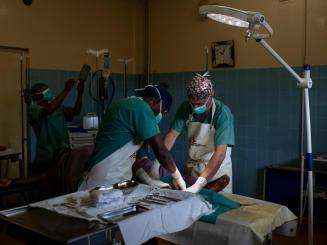
Arrival in Nyamukubi
When we arrived at the health center in Nyamukubi, it felt as if all the remaining villagers were there. The rooms were full of injured people everywhere—on the beds, on the floors—and many relatives too. People were panicking; crying and shouting, and the local health staff seemed overwhelmed.
The first thing we did was help manage the crowd and triage patients. We identified which patients were the most critical, who needed specialist care to survive, and who had moderate injuries that could be treated on the spot. Two patients with head trauma injuries died shortly after our arrival.
April 04 12:00 AM
Humanitarian disaster in North Kivu demands urgent response
About one million people have fled fighting in North Kivu in the past year. So far, the humanitarian response has been vastly inadequate.
Read More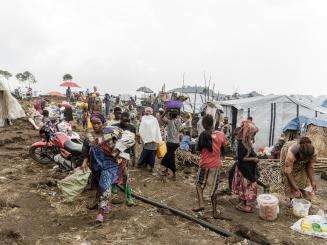
Transferring patients by boat to Kalehe
Meanwhile, in the town of Kalehe, the second team found a very similar situation, with dozens of wounded patients who had already been transferred from Bushushu village.
We had to think fast as we faced a major challenge: the landslide had cut off the main road, making it unusable. Thanks to the community, we identified the owner of a commercial boat who ran daily trips to Goma via Lake Kivu. We rented the boat and moved seats around so we could properly position the patients.
That same day, we used the boat to transfer 16 seriously injured people from Nyamukubi to Kalehe. They had multiple traumatic injuries. As we only had enough fuel for a short trip, we took them first to the port of Kalehe, and then we made a series of journeys on a damaged, unpaved road to take them to the town’s hospital. There, they joined 59 other injured patients, many of them children or pregnant women
Over the following days, we did further evacuations of seriously injured patients from the affected areas to Bukavu, in cooperation with health authorities and other organizations, now using more sophisticated boats. We transferred a total of 41 patients to the provincial hospital in Bukavu.
It was an extremely challenging operation, with difficult decisions to make, as patients were accompanied by relatives and not everyone could be taken on board. At some point I stopped asking patients about the whereabouts of their relatives; their answers often confirmed the loss of loved ones.
What can you do when you no longer have a home?
Back in the flood-hit villages, some slightly wounded patients who were ready to be discharged remained at the health center, which had become a refuge for displaced people. Other people are sheltering in churches, schools and any administrative buildings that are still standing. People whose houses were not destroyed are hosting up to five families. Some villagers have moved up to the hill and set up makeshift shelters there, while many others have gone to nearby villages. What can you do when you no longer have a home?
May 09 04:09 PM
Witnessing ‘catastrophic scale’ of sexual violence in North Kivu
MSF teams in and around Goma, DR Congo, cared for 674 victims of sexual violence in just two weeks.
Read More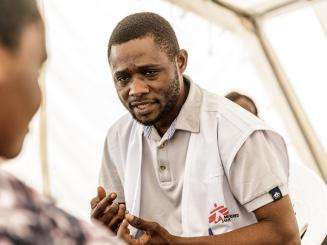
By May 11, several nongovernmental organizations and UN agencies had arrived in Kalehe. The most urgent humanitarian needs are shelter, drinking water, food, protection for the many children who have lost their parents, and psychosocial support to cope with this tragedy. We at MSF remain vigilant about the condition of the wounded people and other medical needs that could arise.
So far, more than 400 people have been confirmed dead due to the flooding and landslides, but local authorities estimate that several thousand are still missing, particularly in Nyamukubi. The hope of finding them alive has faded away and the search for dead bodies, managed by the Congolese Red Cross and the local community, continues, hampered by a lack of logistical means to deal with a catastrophe of this magnitude, which will long haunt the memories of the people here.
